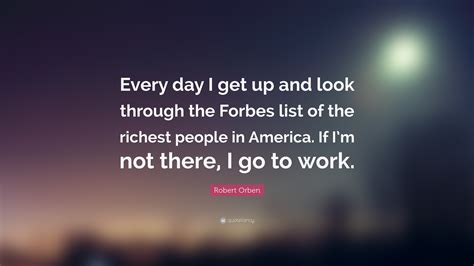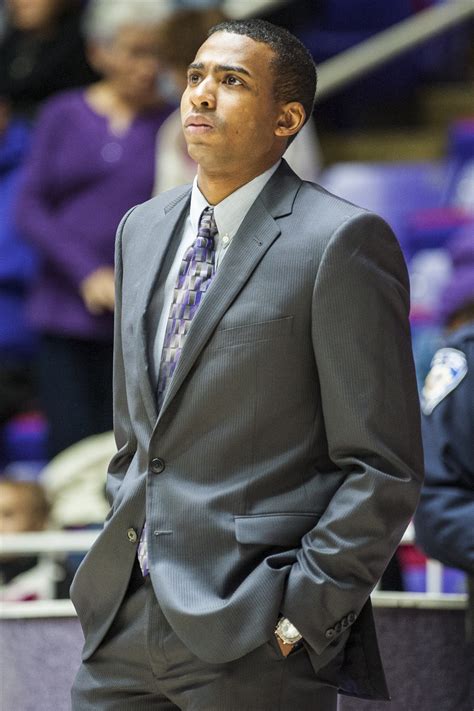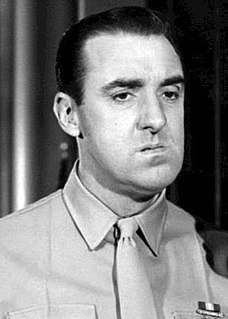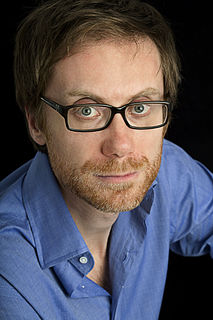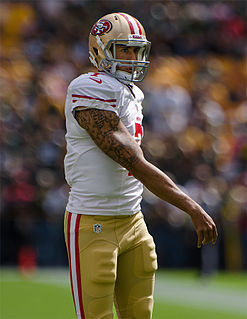A Quote by Steve Martin
I think probably the most difficult challenge was just the climb and rise in show business because I went through my entire twenties with some success as a comedy writer but not much as a performer. And you have to be kind of informed and naive at the same time.
Related Quotes
I find that I'm just drawn to anything that's going to challenge me as an actress. So any time I get a chance to do a little comedy, that's also a nice change for me. Most of the time people think of me as a dramatic actress and singer. And there's a challenge there because comedy is hard. What do they say? "Dying is easy; comedy is hard."
It's very hard to find a good comedy. I prefer doing comedy far over anything else because I think they're actually more profound. But finding a good one and a great ensemble is very difficult to do and I'm delighted that in these particular times there is so much interest in comedy and that comedy is having so much success.
It always seems to someone outside the business that it is very difficult to write for a comedy show because it must be done quickly. Actually, it is much easier to write this humor than to do a joke or a show from scratch, because the audience knows the plot. Just mention what is going on and then deliver the punch line.
Like, your body has to get used to being in front of people. Like - and you have to be like - you have to be kind of a ham, you know? Like, the thing about writers is they're generally self - comedy writers - self-loathing, sort of play small. And as a, like, performer, you have to think like a comedy writer but act like a performer.
You can work on a movie for years, and you won't know until you show it to an audience for the first time if it makes any sense to them at all, if they're touched, if they find it funny, so it's endlessly exciting, because failure is just right there all the time, and your chances of success don't rise that much based on the fact that you succeeded last time.
I think our culture views success as visibility, being seen as being successful. Whereas I've learned that success is rooted in helping and connecting to other people, and knowing where you can contribute. I've kind of spent my thirties doing that, because in my twenties I was seeking any kind of success.
The biggest challenge for me, as an actor, is to be informed, prepared and focused, at the same time. I had to just keep on working, prepping, reading and imagining, all the way through, but the biggest challenge is always to let go of all that and just be open to others. That's what we do, as actor. We play with each other and we stimulate each other, and we have to be prepared to be stimulated by the other. That's always my big challenge.
We're having so much writing some of the sillier stuff that never would have been on Mr. Show. And that's not a knock on Mr. Show at all, because it's my favorite comedy show of all time. Even before I worked on it. It's just really refreshing to write something so stupid and say, "We gotta do that."
An inevitable question asked of a performer who has made a modest success of his career is, 'How has success changed you?' It's a loaded question because it automatically assumes that there has been a change. And, in a sense, the assumption is a correct one. Basically, however, most people remain pretty much the same.
There's this message to comedians in particular, that you shouldn't write it, and a television writer should write it. And that's a prevailing conventional wisdom that I think is really wrong. That's not to say that television writers aren't great, but I think that the belief that some comedy writer's going to be able to capture your voice is naive.
When I get hired as an actor as opposed to a writer, one of things that's exciting for me is doing stuff I wouldn't normally do myself. So whether it's a kid's movie or a voice in animation or in this case - where I just get to be silly, it's a different kind of comedy for me. As a performer, it's a different pleasure than when you're writing or directing. As a performer, you're just in the hands of the director and you go with whatever they want to do.
I think that can also be the downfall at the same time in what's really difficult about being kind of in the public eye, you have so much exposure through the Internet, and you can receive a lot of comments, and you get kind of immediate gratification, but also immediate response from people that can either be negative or positive. But I'm really thankful for the internet because it's allowed me to connect with people so much more easily.





